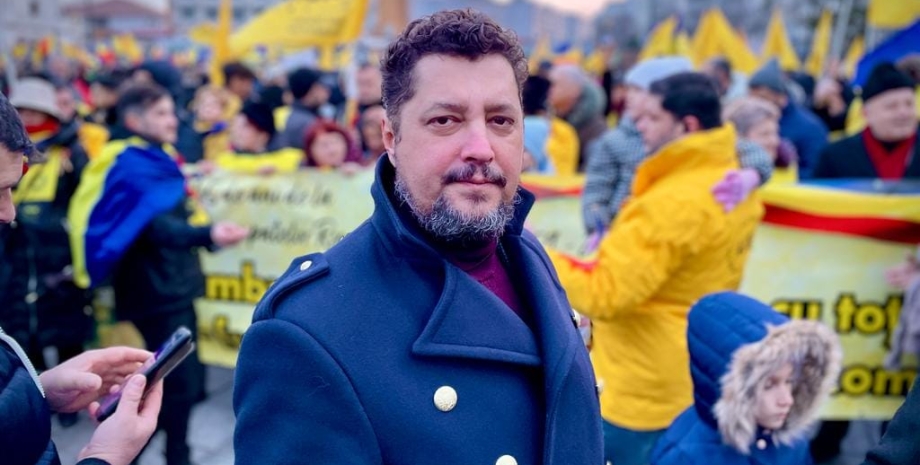
"We are always at the crossroads, and we will have to deal with these great empires to get our sovereignty and make it holistic. We will not truly sovereign until we reintegrate the Romanian state in its natural borders. Bessarabia cannot Forgot, she has to go home! ” Said the politician. These are not the first such statements of Targius.
At the beginning of a full -scale invasion of the Russian Federation in Ukraine, he called on Romania to reunite with the Moldova, annexed USSR in 1940, as well as with the Ukrainian border regions - Bessarabia, Northern Bukovina and Transcarpathia. Simultaneously with the Romanian politician, the leader of the Hungarian far -right party "Our Motherland" (Mi Hazánk Mozgalom) Laszlo Torotskaya stated that if Ukraine loses the war, his party would demand Transcarpathia.
"If Ukraine's statehood ceases to exist as a result of war, Mi Hazank will claim Transcarpathia as a single parliamentary party," Torotskaya said. European policies of far -right views and the full -scale invasion of the Russian Federation have claimed the rights to the border territories of Ukraine, but their words were not perceived as acute as today, says political scientist Vladimir Fesenko. "These politicians did not say anything new.
But now these statements are dangerous because they are a consequence of Putin's specific actions. In the 1930s, an aggressive wave in Europe began after Hitler and Mussolini's actions and actions and intensified when Germany began to capture others countries. Today's activation of far -right politicians is a consequence of Putin's invaders. Nazism, fascism, imperial policy is an epidemic. In this case, the carrier of the virus is Putin.
While it is not stopped, politicians will make similar statements, "says Fesenko. Political expert Oleg Posternak notes that Russia has been cooperating with the far -right parties of Europe for many years. It is important for Moscow to emphasize in the international arena that Ukraine is allegedly not capable of a state. Radical statements of politicians have nothing to do with the official position of both countries that support Kiev in the fight against the Russian Federation.
"These statements are 100% provocation by the Russian Federation that have long been working with the far -right all over the European continent. They exploit the topic of division of Ukraine to call into question our subjectivity. The information campaign has nothing to do with reality. Hungary and Romania - members EU and NATO.
These supranational organizations have enough levers of influence to prevent any violation, even if you imagine that the far-right will come to power, "says focus Posterak. The nature of right policy is speculation on injuries of the past, experts explain focus. Thus is the struggle for a voter who faces economic and social problems in the present.
The far -right, in turn, try to compensate for the dissatisfaction with the current state of affairs with loud statements about the need to revive the former grandeur of their states. According to experts, the support of far -right politicians in Hungary and Romania is low. Although the Hungarian Party "Our Motherland" (Mi Hazánk Mozgalom), the leader of which is Laszlo Torotskaya, who declared Transcarpathia, there are several places in the state meeting [unicameral Parliament of Hungary - ed. ].
However, interest in far -right in Europe is really observed. One of the striking examples is the "Alternative for Germany" (ADN). According to experts, the far -right party, which appeared in 2013, stablely support 20% of Germans. "Unfortunately, in Germany, the popularity of ADN has increased sharply, due to the migration problem. The party has reached the second position, its rating is stable 20%. Adn has its mayors and burgomists for the first time in the history of its existence.










All rights reserved IN-Ukraine.info - 2022